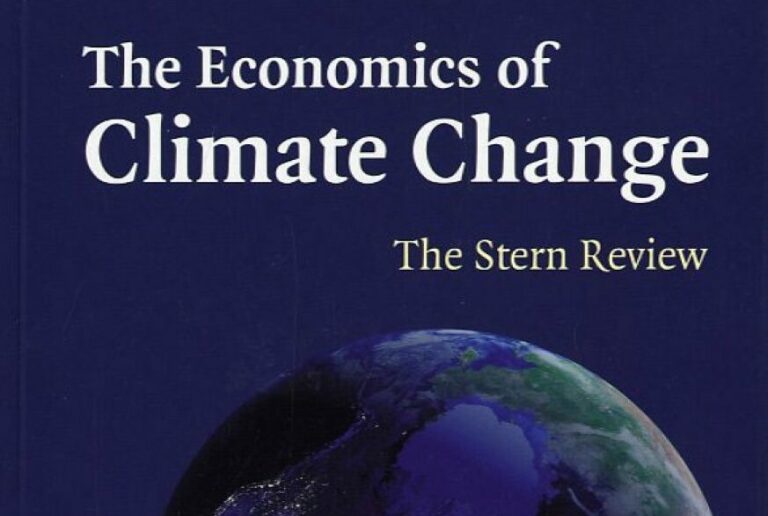

The Economics of Climate Change: The Stern Review is a landmark study that was released on 30 October 2006 by Her Majesty’s Treasury of the UK Government. It has become one of the most influential reports on climate change ever produced, helping to create national and international momentum for a global deal on climate change.
The Review was led by Nicholas Stern, then Head of the UK Government Economic Service and now Chair of the Grantham Research Institute on Climate Change and the Environment and IG Patel Professor of Economics and Government at LSE.
The Review was announced by the UK’s Chancellor of the Exchequer, Gordon Brown, in July 2005 and was commissioned to report to the Prime Minister, Tony Blair, and the Chancellor by autumn 2006, on the following issues:
Submissions were invited from 10 October 2005 to 15 January 2006 and to inform their writing Nicholas Stern and Review team members visited several countries and institutions, and had interactions with economists, scientists, policymakers, business and non-governmental organisations.
After its release in October 2006 by the UK Government, the report was published as a volume
in January 2007 by Cambridge University Press.
The Review’s main findings included:
: “This Review has assessed a wide range of evidence on the impacts of climate change and on the economic costs, and has used a number of different techniques to assess costs and risks. From all of these perspectives, the evidence gathered by the Review leads to a simple conclusion: the benefits of strong and early action far outweigh the economic costs of not acting.”
The year after publication, 2007, saw the Conference to the Parties of the United Nations Framework Convention on Climate Change (UNFCCC) meet in Bali at the COP13 summit and Nicholas Stern presented to the conference, making the case that global action on climate change would sustain global growth and development. The COP13 co-facilitators’ report
on the dialogue on long-term cooperative action notes that, “The Stern Review represented for us and for many others a turning point in understanding the economic case for providing the financial resources to underpin an effective global response to climate change. It presented estimates of the cost of such a response, which while spanning a considerable range, on the whole were relatively modest compared with the risks of unmitigated climate change.” The Bali Road Map and Action Plan that resulted from COP13 laid some of the groundwork for the Copenhagen summit, COP15, in 2009, which in turn gave rise to the Copenhagen Accord, a non-binding document but an important step in the international negotiations that led to the Paris Agreement of 2015.
Since the Stern Review’s publication, Nicholas Stern and other contributors have published a number of related academic papers. In 2015 the journal Proceedings of the Royal Society: B published a paper
by Lord Stern reflecting on the development of climate change policies over the 10 years following the Stern Review’s commissioning. In October 2021 the Grantham Research Institute marked the 15th anniversary of the Review’s publication with an event at which Lord Stern reviewed progress and further action needed. Slides and video from this event can be viewed here.